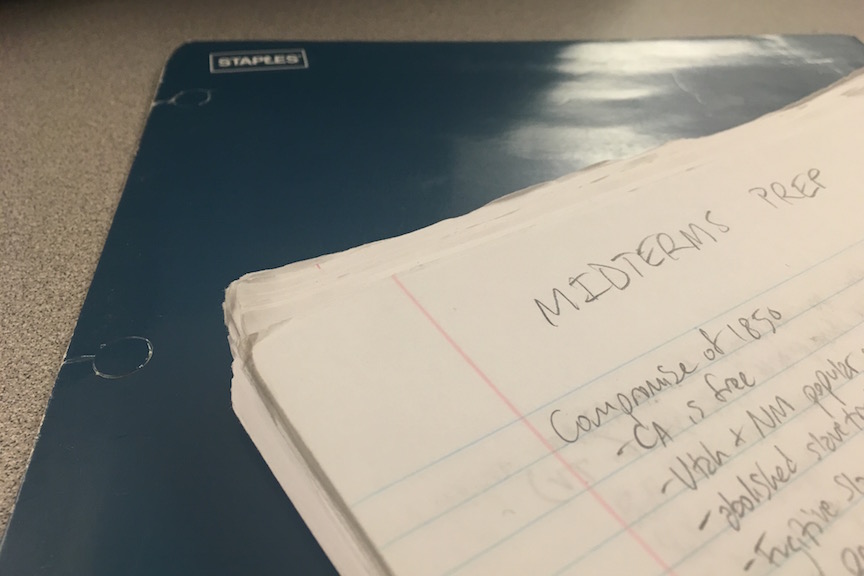WSPN’s Meg Trogolo suggests strategies for doing well on the honors U.S. history midterm, as well as succeeding in the second semester of the class.
Survival Guide: Honors U.S. history
Congratulations, junior HUSH students. You’ve made it through the first semester of a difficult class, and you’ve survived the first half of arguably the hardest year of high school. There’s still a long road ahead of you in HUSH, however, and I hope that these tips make it that much easier for you to travel.
Let’s start with Tuesday morning’s midterm.
Study using the guide your teacher gives you.
Usually, Mr. Delaney and the other teachers will post a list of terms to know as well as possible essay questions on It’s Learning before a test. This is the best resource you have, besides your notes, so use it as much as you can. Go through each term and write out its definition or its significance. Go back to your notes if you need to, but make sure you hit each name, event, and idea on the list. Once you’re done with that, take a look at the possible essay prompts and write an outline for each one.
Get a good night’s sleep and eat well before the exam.
Go to bed on the earlier side and don’t let yourself stay up past midnight. On Tuesday morning before school, eat a good breakfast with protein and fruit and go over the list of terms and outlines you made beforehand. Bring a water bottle to drink from during the exam – remember, hydration is key.
Manage your time during the exam.
Spend a short amount of time on each multiple choice question, but make sure you double-check your answers once you finish the section. If you don’t know the answer to a question, make the best educated guess you can, even if it feels like a leap of faith. In the short response section, answer each question concisely. When you reach the essay section, remember that outline you made and hopefully went over before the test and write it out underneath the question. Then, open your blue book and expand on the outline, just like you would with any other essay.
Here’s some advice for the semester ahead.
When writing papers, organize your notes and your time.
I learned a lot about time management when I took HUSH last year, to say the least. One of the main lessons the course taught me was that I just couldn’t leave all my work on papers until the last minute. You will get readings on It’sLearning when Mr. Delaney first assigns writing. Look them over when they first go up. Print them out. Highlight and annotate them. Once you’re done, set aside time to outline your paper, draft it, and make edits, and make sure you don’t leave all the work until the last minute. Please. Do it for yourselves.
Have fun!
In the academic pressure cooker that is Wayland High School, it’s easy to prioritize grades above everything and forget that it’s possible to enjoy what you learn. For your own sake, have fun! Say that during the unit on labor rights, you take an interest in the history of unions and the way they work. If you want to read up on union history in your free time and chat with your teacher after class about what you found, go for it. In March, you’ll start working on your class’s chapter of the Wayland High School History Project. This will give you the opportunity to dig through our town’s past and weave together forgotten stories from what you find, and it’ll be like nothing you’ve ever done in a history class before. Roll with it and enjoy it!
